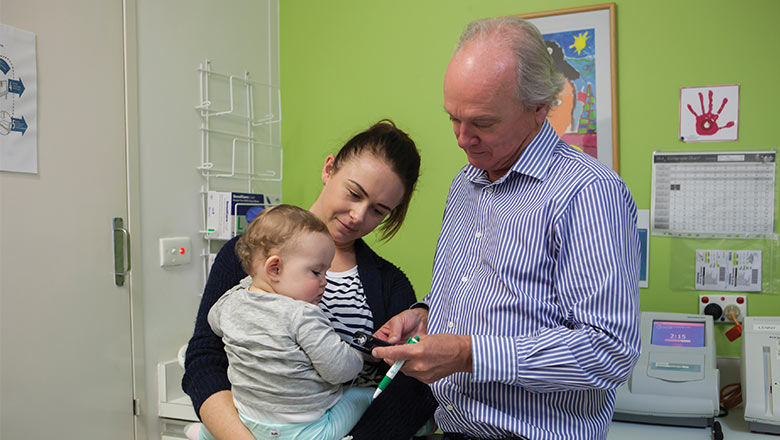Search
Research
Intranasal Insulin Trial IIIf successful, this vaccine could prevent type 1 diabetes and the need for daily insulin injections in people at risk.
Research
Adolescent type 1 diabetes cardio-renal Intervention trialAn international clinical trial looking at intervention with Angiotensin Converting Enzyme Inhibitors (ACEI), Statins, or a combination of both
Research
Safety evaluation of closed loop system during hypoglyaemic stimuliThe purpose of this study is to evaluate the safety of new system called the Medtronic MinimedTM 670G that has been designed for long term outpatient use.

News & Events
New focus on type 2 diabetesResearchers at the Children’s Diabetes Centre at The Kids Research Institute Australia have begun researching type 2 diabetes to tackle the rising incidence of the disease among young people in Australia.

News & Events
The hidden burden of diabetesWhen Jodie and Brad Scott welcomed their fourth child Heath into the world, they were prepared for the many sleepless nights that come with caring for newborns.

News & Events
Improving the lives of kids with Type 1 DiabetesDiabetes research got a huge boost when the WA Children’s Diabetes Research and Education Centre for Research Excellence opened late last year.

News & Events
Major focus for children’s diabetes research in WALaunch of the WA Children's Diabetes Research and Education Centre for Research Excellence (CRE) on the eve of World Diabetes Day.

News & Events
Five things that may surprise you about type 1 diabetesProfessor Liz Davis reveals five things you might not know about type 1 diabetes.
Research
Resilience and Diabetes 2 (the RAD2 study)Investigators: Anna Hunt, Ashleigh Lin Stress and anxiety are significant problems in children and adolescence with type 1 diabetes. Not only do
Research
Neurocognitive outcomes of children with type 1 diabetes mellitusTo conduct an analysis of children with TIDM’s cognitive profile at an age in which both cognition and cortical development are still maturing
